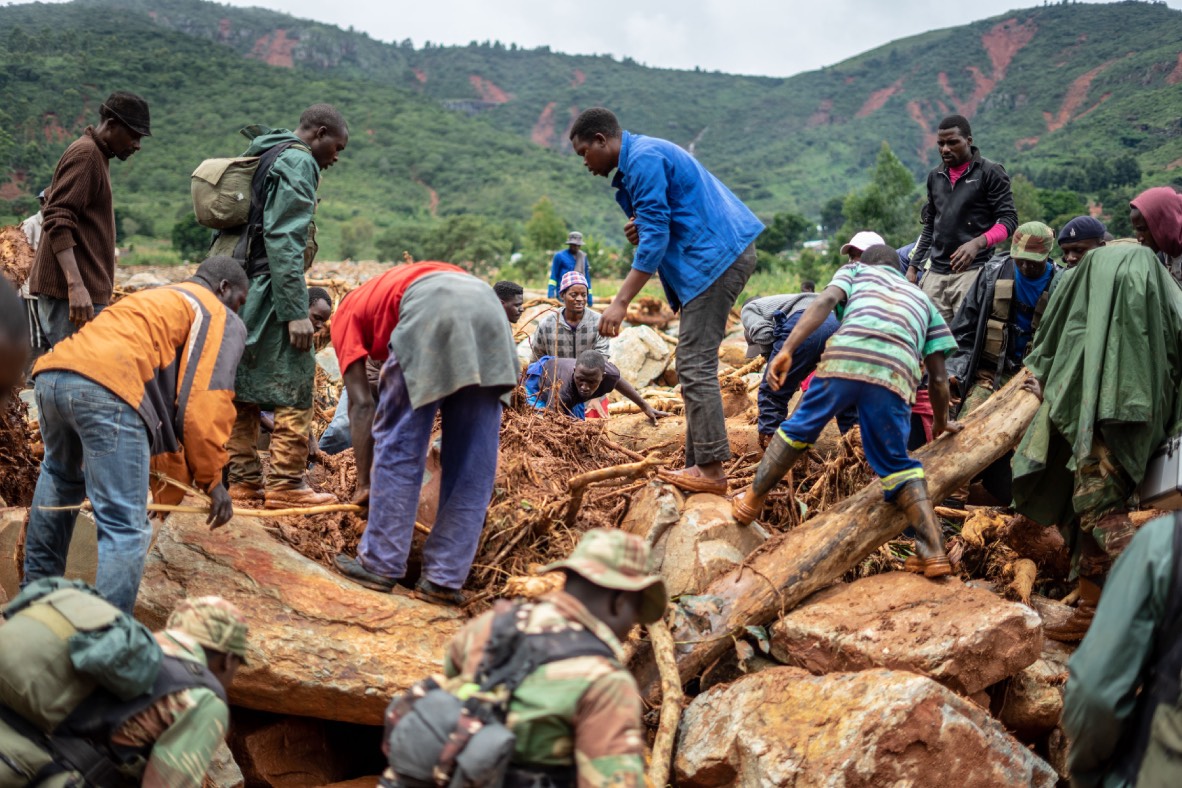Cyclone Idai a ‘massive disaster’ in Mozambique and Zimbabwe
Survivors cling to trees as water levels rise in southern Africa

A free daily email with the biggest news stories of the day – and the best features from TheWeek.com
You are now subscribed
Your newsletter sign-up was successful
Cyclone Idai has caused a “massive disaster” in southern Africa affecting hundreds of thousands if not millions of people, says the United Nations.
The cyclone, which caused devastation in Mozambique before striking Zimbabwe and Malawi, has been described as “one of the worst weather-related disasters” in the southern hemisphere.
Reports say the cyclone has destroyed almost everything in its path and caused devastating floods. It has killed and injured thousands of people and ruined crops. The Times says survivors are “clinging to trees and rooftops to escape rising waters”.
The Week
Escape your echo chamber. Get the facts behind the news, plus analysis from multiple perspectives.

Sign up for The Week's Free Newsletters
From our morning news briefing to a weekly Good News Newsletter, get the best of The Week delivered directly to your inbox.
From our morning news briefing to a weekly Good News Newsletter, get the best of The Week delivered directly to your inbox.
More than 2.6m people could be affected across the three countries. Mozambique’s President, Filipe Nyusi, said the death toll could reach 1,000. He called it “a humanitarian disaster of great proportion”.
The United Nations has allocated $20m (£15m) from its emergency response fund to help. Britain is sending up to £6m in aid for victims in Mozambique and Malawi, two of Africa’s poorest countries.
A spokeswoman for the World Meteorological Organisation, Claire Nullis, said: “What we are seeing emerging from our informal networks and from the official databases is if the worst fears are realised... it is one of the worst weather-related disasters in the southern hemisphere.”
Meanwhile, experts say the climate crisis is making deadly storms like this more severe.
A free daily email with the biggest news stories of the day – and the best features from TheWeek.com
Dr Friederike Otto, of Oxford University’s Environmental Change Institute, told The Guardian: “There are three factors with storms like this: rainfall, storm surge and wind. Rainfall levels are on the increase because of climate change, and storm surges are more severe because of sea level rises.”
Paulo Ceppi, of the Grantham Institute at Imperial College London, agreed, saying: “There is a direct link between global warming and cyclone intensity.”
-
 ‘Longevity fixation syndrome’: the allure of eternal youth
‘Longevity fixation syndrome’: the allure of eternal youthIn The Spotlight Obsession with beating biological clock identified as damaging new addiction
-
 How corrupt is the UK?
How corrupt is the UK?The Explainer Decline in standards ‘risks becoming a defining feature of our political culture’ as Britain falls to lowest ever score on global index
-
 Best places to find snowdrops in the UK
Best places to find snowdrops in the UKThe Week Recommends The snowdrop season is upon us, with ‘blankets’ of the beautiful bloom signalling that spring is on its way
-
 Epstein files topple law CEO, roil UK government
Epstein files topple law CEO, roil UK governmentSpeed Read Peter Mandelson, Britain’s former ambassador to the US, is caught up in the scandal
-
 Iran and US prepare to meet after skirmishes
Iran and US prepare to meet after skirmishesSpeed Read The incident comes amid heightened tensions in the Middle East
-
 Israel retrieves final hostage’s body from Gaza
Israel retrieves final hostage’s body from GazaSpeed Read The 24-year-old police officer was killed during the initial Hamas attack
-
 China’s Xi targets top general in growing purge
China’s Xi targets top general in growing purgeSpeed Read Zhang Youxia is being investigated over ‘grave violations’ of the law
-
 Panama and Canada are negotiating over a crucial copper mine
Panama and Canada are negotiating over a crucial copper mineIn the Spotlight Panama is set to make a final decision on the mine this summer
-
 Why Greenland’s natural resources are nearly impossible to mine
Why Greenland’s natural resources are nearly impossible to mineThe Explainer The country’s natural landscape makes the task extremely difficult
-
 Iran cuts internet as protests escalate
Iran cuts internet as protests escalateSpeed Reada Government buildings across the country have been set on fire
-
 US nabs ‘shadow’ tanker claimed by Russia
US nabs ‘shadow’ tanker claimed by RussiaSpeed Read The ship was one of two vessels seized by the US military